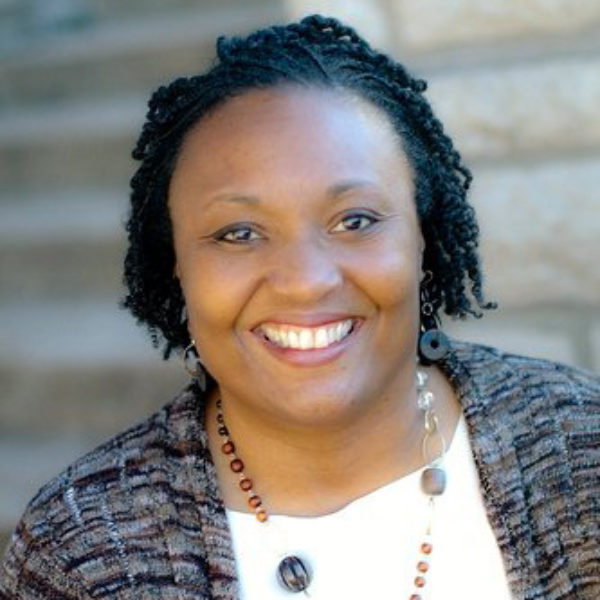Treating Racism Like We Treat Cancer
“There is no thing as a single-issue struggle because we do not live single-issue lives.”
—Audre Lorde, "Sister Outsider: Essays and Speeches"
What would happen if we banded together to fight the disease of racism as we do cancer? As an African-American woman who is a two-time breast cancer survivor, I often ponder this question.
I celebrated over the weekend when I heard that the University of Missouri at Columbia football team announced that they were boycotting games and practices until President Tim Wolfe resigns. I am encouraged not only because I appreciate seeing young Black students taking a stand against injustice, but also because I saw more than just Black students banding together. The picture of the Mizzou football team visually shows players and coaches of all races, young and older men banded together arm and arm.
What warms my soul is that they all seem to understand that they are in this together and they are addressing the problem. The problem is racism.
Racism is a social disease that has psychological and health consequences. The homicide rate of African Americans is 12 times higher than the death rate for all people in developing countries. African Americans, Latinos, and American Indians have higher death rates and elevated risk of diseases such as stroke, diabetes, heart disease, and cancer as compared Whites. Racism is as smart as it is ignorant. It adapts, and it is elusive. There is no cure for racism nor a billion dollar campaign to fund research.
While racism disproportionately affects people of color, the disease rampantly impacts the affective psychological health of White people. Lack of empathy for the experiences of others, and feelings of guilt and fear, plague White people when considering racism. Dissonant feelings about the “unjust, hierarchical system of societal racism” can produce a wide range of defensive reactions. These reactions interrupt productive dialogue that could lead to change because those with privileged identities and in powerful positions respond defensively as they explore the realities of racism. The fear and the entitlement disrupt their ability to listen responsively and interfere with their willingness to share power.
The hunger strike of Jonathan L. Butler connects the struggles with racism to our humanity. Racism is dehumanizing and it depletes what nourishes us. This disease disempowers individuals and extinguishes their ability to live without the negative shadow of stigma associated with a long history of hate and racial injustice in this country.
I wonder what we can learn from the way we fight cancer that will teach us how to survive racism.
As a cancer-survivor, I have learned a lot about how to fight this disease. I am fighting a disease that is publicly acknowledged as an illness and that is not directly my fault. I am given sympathy for it. There is an entire month dedicated to honoring survivors as heroes and sheroes. I am blessed with excellent health care and insurance. My treatments for the disease include preventative efforts (healthy eating, exercise, supplements) coupled with medications (hormonal suppressants and chemotherapy). One single chemotherapy treatment can cost over ,000 and every one of my infusions is covered by insurance. I am reassured that there are thousands of researchers looking for ways to combat this disease. I am assured that we will find a cure.
Racism is not acknowledged as a problem that impacts the American life beyond the individual. We do not organize and fight this disease that partners with just about every social problem we have in this country. We have trouble generating the empathy for how it breaks down the essence of our being and limits our free expression, particularly for people of color and peripherally for White people. As an individual, I am curiously taxed for overcoming the obstacles racism places in my path. As a middle-class African American, I am seemingly seen as “one of the ones who made it out” from under the effects of racism. The tax includes frantically trying to help other individuals “make it out” by extending myself outside of my limits. There is not a hopeful ethos associated with the disease of racism. In fact, we seem to complacently accept that it will always be with us and that there is no cure.
I applaud head coach Gary Pinkel and the Mizzou athletic department’s stance to support students in the right to “tackle these challenging issues.” Listening to those who experience racism, standing with them in support, and using personal and collective power to change the system actively fights the disease. Dismantling a racist system requires shifts in power.
The Mizzou Family stands as one. We are united. We are behind our players. #ConcernedStudent1950 GP pic.twitter.com/fMHbPPTTKl
— Coach Gary Pinkel (@GaryPinkel) November 8, 2015
I wonder what would happen if we all started to alter our minds and acknowledge racism as a disease.
Would we stop being surprised by racism and acknowledge the ordinariness of this atrocious disease? Would we acknowledge its existence as a disease and start regular treatment to manage it?
Maybe fighting racism like a disease looks like what the Mizzou football players and coaches are doing on this day. I wonder how our homes, our communities, our universities, and our society might change if we took collective action to face down this pervasive disease.
Would we start putting federal and state funding toward research that helps us to understand and deconstruct unconscious bias? Would we start nationwide programs that helps to traverse difficult dialogues needed to identify strategies for addressing inequities? Would we start handing out ribbons for being racism survivors?
